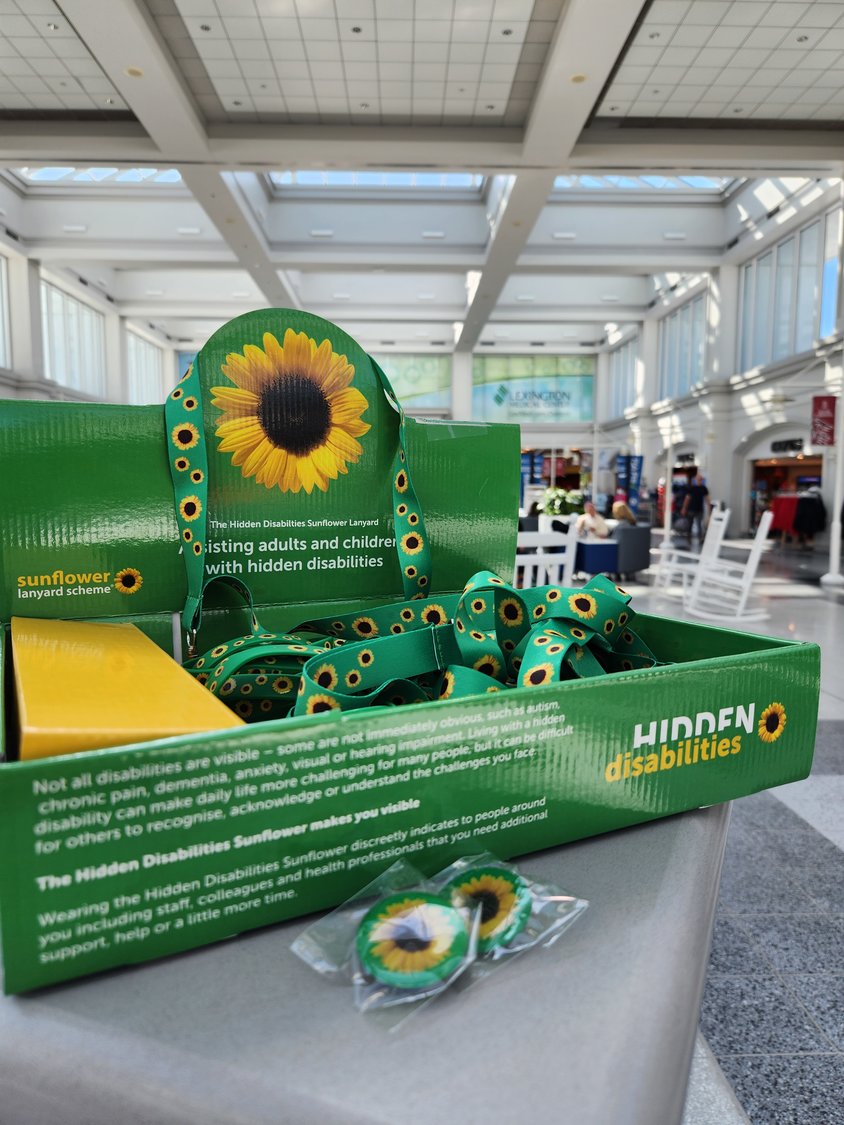Columbia Airport First in SC to Launch Hidden Disabilities Program
For those with a mental, physical or neurological condition that is not seen, flying may aggravate hidden symptoms.
This item is available in full to subscribers.
Subscribe to continue reading. Already a subscriber? Sign in
Get 50% of all subscriptions for a limited time. Subscribe today.
Please log in to continueNeed an account?
|
Columbia Airport First in SC to Launch Hidden Disabilities Program
For those with a mental, physical or neurological condition that is not seen, flying may aggravate hidden symptoms.
The Columbia Metropolitan Airport is the first airport in the state to launch an in-terminal initiative it says will help.
The Hidden Disabilities Sunflower Program, which the West Columbia airport has now added, is in over 140 airports across the world, according to Kim Crafton, the airport’s director of marketing and air service development. After noticing the program in other airports, the local transit hub decided to install the initiative to provide support for those who may need extra support while flying.
These include people with cognitive or mental disorders and other chronic conditions, including autism, anxiety, PTSD or a speech or hearing impairment.
Not only does the program allow airline employees to support anyone with a hidden disability, but it can also help fellow travelers to show compassion and grace for those who need extra support, Crafton said.
“Upon learning about the Hidden Disabilities Sunflower Program, we immediately wanted to be involved,” Mike Gula, the airport’s executive director, is quoted in a press release. “We do everything we can to ensure our passengers have a good experience while traveling through our airport. By adding this initiative for those who have a hidden disability is just another way we’re putting our passengers’ needs first.”
The program uses Sunflower-branded lanyards, pins and bracelets as a discreet way for airline and airport employees to see that someone has an unseen disability and can offer assistance as needed. The Sunflower pieces are free and do not need to be returned to the airport, and travelers may keep them for future flights and can even personalize their cards, according to the Hidden Disabilities website.
Personalization can include a photo, name, emergency contact and any details regarding the disability.
All airport employees and staff have received training and know what to do when they spot the Sunflower identification, Crafton said.
One employee, Megan Barton, said employees watched training videos to understand the program and how to go above and beyond for the traveler with a hidden disability. The release notes that this process took place over the past few months.
Anxiety is often heightened when traveling, exacerbating many of these issues, Barton said.
The airport promises that extra time, attention and support will be provided to the person or family traveling with someone with a hidden disability.
“When someone from Team CAE notices a person wearing a lanyard, bracelet or pin, they will ask them how they can help and stay with them until no additional support is needed,” Crafton said.
For instance, ensuring TSA staff are aware of a passenger's disabilities can let them know to give more support at security checkpoints and possibly walk the affected person to their gate, car or garage.
No special privileges will be given to those with Sunflower identification. They won’t be moved to the front of the line, but special care will ensure their travel experience is as easy as it can be.
“Leading the charge and being the first airport in South Carolina to incorporate this initiative is a point of pride for us,” Gula is quoted. “For us, it’s all about providing an excellent passenger experience every time.”
Keywords
columbia metropolitan airport, lexignton county business, midlands disabilitiesOther items that may interest you







Comments
No comments on this item Please log in to comment by clicking here